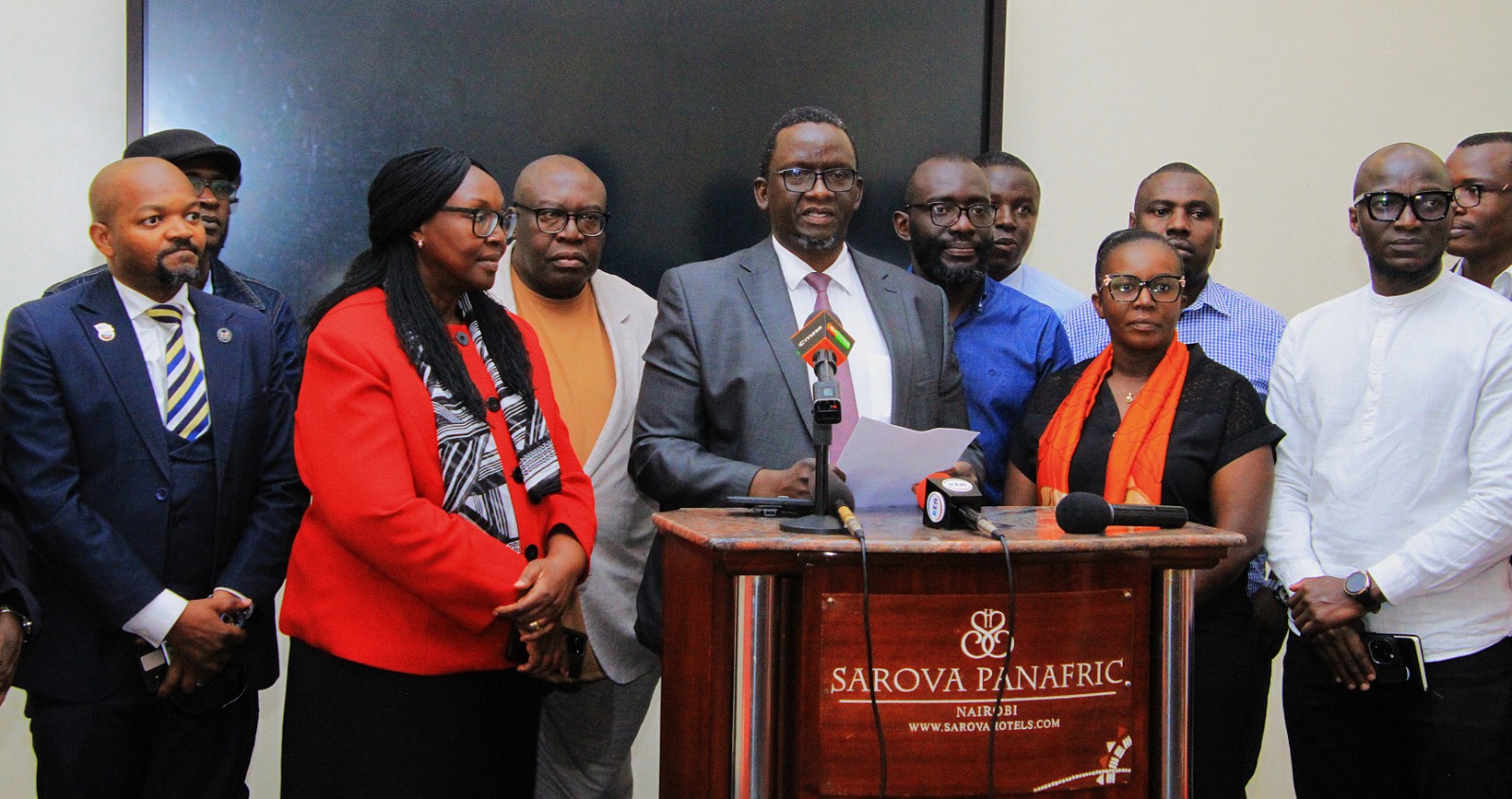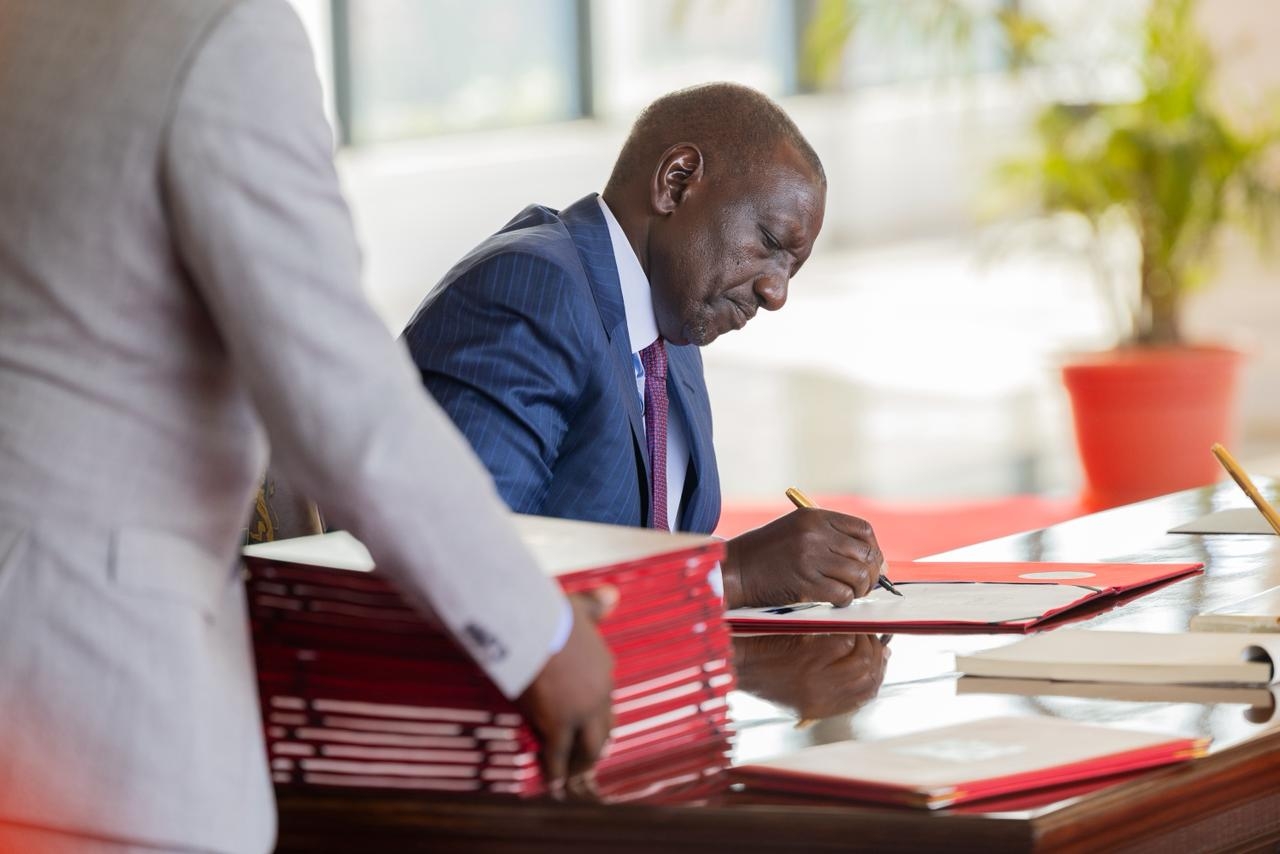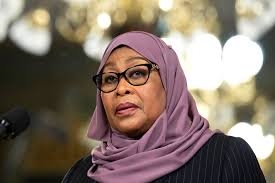The Kenya Export Promotion and Branding Agency has unveiled its strategic plan to grow Kenya’s exports to Sh1.5 trillion by 2028.
This will be a 10 percent increase from the 873.1 billion that was recorded in 2022.
The agency through the implementation of the 2023/2024 – 2027/2028 strategic plan, says Kenya is set to be positioned among the top 50 global brands.
This renewed push comes at a time when Kenya’s export value for the first time in history hit Sh1trillion in 2023, according to the 2024 economic survey by KNBS.
The great performance was contributed by tea which had an export percentage growth of 15.4 percent from 2022 to 2023.
Despite the push to grow revenue from exports, the agency says that based on the budgetary allocations from the exchequer, it faces a funding gap amounting to Sh8.3 billion.
The Agency’s Board Chairman Jaswinder Bedi, said the country is preparing for significant export growth in priority value chains, targeting multiple international markets.
He noted that exports of meat to new Middle east markets have already started with the first shipment of 100,000 goats to Oman.
“One thing they told us, is that we need to create quarantine areas which we are trying to do outside the ports for 21 days, it’s all to do with health and safety. We are thinking maybe we can do that in Lamu because we have a port and can send shiploads of live animals,” said Jerswinder.
For value-added tea, whose exports were valued $45.37 million (Sh5.9 billion) by 2023, the agency says that through value addition it will target $344.53 million (Sh44.9 billion) by 2028.
Key markets that Kenya is targeting in the period include China, countries within the African Continental Free Trade Area such as Ghana, Nigeria, and South Africa, as well as the Gulf Cooperation Council (GCC) nations, the UK, and the USA.
In the coffee sector, Kenya's exports were valued at $343.04 million (Sh44.7 billion) by 2023, and KEPROBA says it is aiming to grow to $437.81 million (Sh57.1 billion) by 2028.
Targeted markets for coffee exports include the USA, the European Union (Germany and Belgium), the UK, Asian countries such as South Korea and Japan, and GCC countries like Saudi Arabia.
Exports of meat and meat products stood at $102.27 million (Sh13.3 billion) in 2023 with a target of $130.53 million (Sh17 billion) by 2028.
The new markets that the country will be looking into in the next four years include GCC nations (UAE, Oman, and Saudi Arabia), AfCFTA countries (notably Nigeria), and East African Community (EAC) members (Uganda, Tanzania, and the Democratic Republic of Congo).
Kenya is also focusing on expanding exports in other sectors, including dairy, leather and leather products, textiles and apparel, the blue economy, and edible oils, aiming to diversify and strengthen its economic footprint on the global stage.
KEPROBA CEO Floice Mukabana said that Kenya is targeting an array of international markets with tailored strategies to boost its export performance.
New markets, identified for development interventions, include Kazakhstan, Nigeria, Russia, Ghana, South Africa, Oman, Malawi, Spain, Israel, Portugal, and Zambia.
“These countries represent untapped opportunities requiring dedicated efforts to establish a foothold,” said Mukabana.
Emerging markets, which necessitate deepening interventions to enhance existing trade relationships, feature Rwanda, China, the Democratic Republic of Congo, Egypt, Italy, Japan, South Korea, Germany, Belgium, Iran, Yemen, Burundi, and Somalia.
"The goal in these regions is to build on current successes and expand market share," she added.
For established markets, Kenya aims to implement consolidation and diversification interventions.
This strategy focuses on safeguarding existing trade and establishing further dominance in key countries such as Pakistan, Uganda, Tanzania, South Sudan, the United States, the United Arab Emirates, Saudi Arabia, the Netherlands, and the United Kingdom.
















